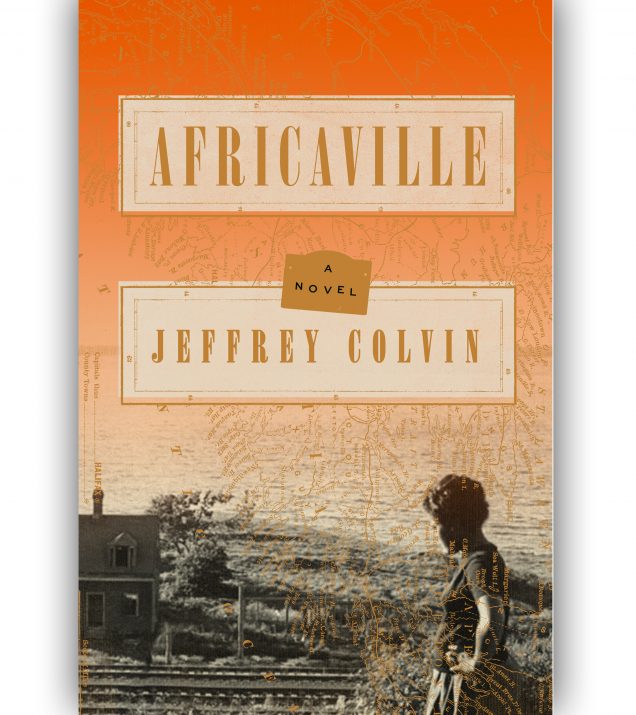Fans of historical literature are bound to enjoy ☛AFRICAVILLE [pub: Amistad] by Jeffrey Colvin. I did. Though admittedly not always my favorite genre, Colvin’s fictional Black settlement of Africaville in Halifax, Nova Scotia lead me on a pleasure quest to learn more about the actual close-knit Black community of Africville in Canada.
I enjoyed getting consumed in the three generations of free southern and Caribbean families from 1918 – 1992, from Halifax and Montreal to Alabama and Mississippi. Full disclosure: I struggled to empathize, ok, I never managed to care for the quest of the second generation, particularly the son Etienne who opted to “crow” or pass for white. Nonetheless, after sharing with my 26-year-old son what I loved about Africaville—the strong sense of community, the high regard for the keepers of tradition and most of all the great grandson’s tenacity and determination to earn the trust of his falsely imprisoned great grandmother [something his father and other family members failed to do]—my son asked to read my tattered, dog-eared paperback galley. I gave him my pristine hardcover edition instead. The sharing of our stories—both fictional and literal—is generational wealth, indeed.
Getting my copy of Africaville signed when Jeffrey Colvin is back in New York on January 14th at the Center for Fiction in Brooklyn. Click here for more book tour stops.
Africaville is not a strict retelling of the story of the Nova Scotia community, but an exploration of the themes of struggle, loss, and family that are part of its legacy. Having grown up in the segregated south where I witnessed the end of several black communities, I felt a connection to the stories about Africville, which I hope will continue to be told by those who know the community well.
—Jeffrey Colvin/goodreads.com
Per HarperCollins:
Structured as a triptych, Africaville chronicles the lives of three generations of the Sebolt family—Kath Ella, her son Omar/Etienne, and her grandson Warner—whose lives unfold against the tumultuous events of the twentieth century from the Great Depression of the 1930s, through the social protests of the 1960s to the economic upheavals in the 1980s.
A century earlier, Kath Ella’s ancestors established a new home in Nova Scotia. Like her ancestors, Kath Ella’s life is shaped by hardship—she struggles to conceive and to provide for her family during the long, bitter Canadian winters. She must also contend with the locals’ lingering suspicions about the dark-skinned “outsiders” who live in their midst.
Kath Ella’s fierce love for her son, Omar, cannot help her overcome the racial prejudices that linger in this remote, tight-knit place. As he grows up, the rebellious Omar refutes the past and decides to break from the family, threatening to upend all that Kath Ella and her people have tried to build. Over the decades, each successive generation drifts further from Africaville, yet they take a piece of this indelible place with them as they make their way to Montreal, Vermont, and beyond, to the deep South of America.
As it explores notions of identity, passing, cross-racial relationships, the importance of place, and the meaning of home, Africaville tells the larger story of the black experience in parts of Canada and the United States. Vibrant and lyrical, filled with colorful details, and told in a powerful, haunting voice, this extraordinary novel—as atmospheric and steeped in history as The Known World, Barracoon, The Underground Railroad, and The Twelve Tribes of Hattie—is a landmark work from a sure-to-be major literary talent.







What do you think?
You must be logged in to post a comment.